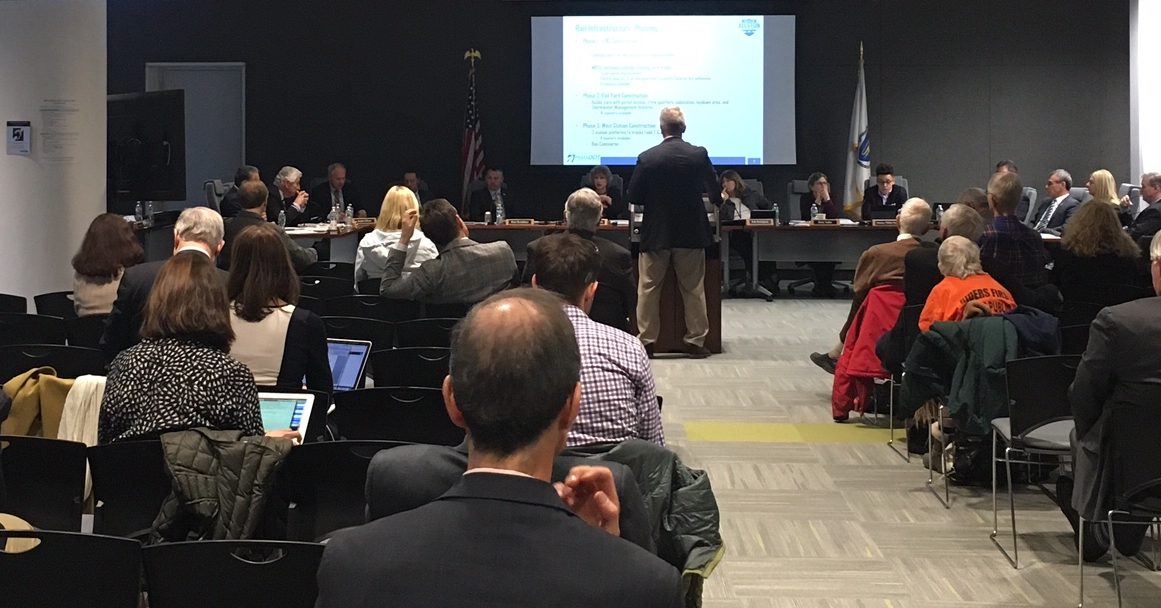It's looking increasingly likely that the MBTA's governing board, which was established in state legislation in 2015 to guide the agency back to a state of good repair and sound management after a disastrous year of service interruptions, will dissolve at the end of June with no dedicated replacement.
The Fiscal and Management Control Board (FMCB) was established on July 17, 2015 with a charge to oversee the T's management and budgets. Since then, the five-member, unpaid board has met multiple times each month to oversee a large increase in capital spending to catch up on deferred maintenance, set an ambitious agenda for future transit enhancements, and generally hold the agency's leadership to higher expectations.
Under its enabling state legislation, however, the FMCB will cease to exist on June 30, and oversight will revert by default to the MassDOT board of directors, which also governs highways, airports, and the beleaguered Registry of Motor Vehicles.
Before the pandemic, it was widely expected that the state legislature would establish a new governance structure for the T before that deadline: the transportation finance bill that passed in the House in early March proposed a new seven-member board, with the majority of board members appointed by the Governor and one member appointed by the Mayor of Boston.
Since then, that bill and transportation issues in general have been dropped from the Legislature's priorities. Unless and until the Legislature and Governor sign off on new oversight legislation, the MassDOT Board of Directors, which meets only once a month, will take over from the FMCB in July.
In a report issued today, experts from the Conservation Law Foundation, MASSPIRG, the MBTA Advisory Board, and Transportation for Massachusetts issued detailed recommendations for a new governing board, and called on the Legislature to pass new oversight legislation before the FMCB expires at the end of June.
“The FMCB has begun to solve the MBTA’s litany of problems, and that work must continue,” said Staci Rubin, Senior Attorney at Conservation Law Foundation, in a press release accompanying the report.
In a follow-up email, Rubin warned against letting oversight of the T revert back to the MassDOT board.
"A board dedicated to overseeing the MBTA, and not distracted by other statewide transportation needs, is critical to ensure that riders have safe and affordable public transit options and that workers are protected," wrote Rubin in an email message. "We need the next board to focus on getting people onto public transit rather than pushing them into their cars."

